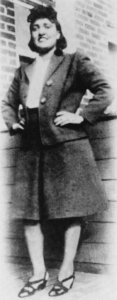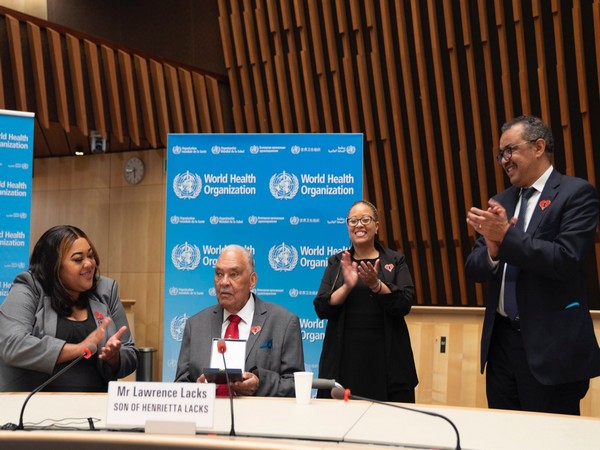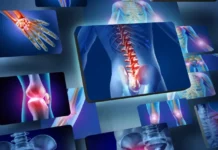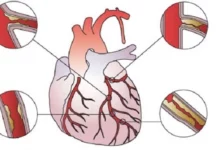GENEVA: Dr Tedros Adhanom Ghebreyesus honoured the late Henrietta Lacks with a WHO Director-General’s award, recognizing the world-changing legacy of this Black American woman who died of cervical cancer, 70 years ago, on 4 October, 1951.
While she sought treatment, researchers took biopsies from Lacks’ body without her knowledge or consent. Her cells became the first “immortal” cell line, and have allowed for incalculable scientific breakthroughs such as the human papillomavirus (HPV) vaccine, the polio vaccine, drugs for HIV and cancers, and most recently, critical COVID-19 research.
Shockingly, the global scientific community once hid Henrietta Lacks’ race and her real story, a historic wrong that today’s recognition seeks to heal, according to a WHO release.
“In honouring Henrietta Lacks, WHO acknowledges the importance of reckoning with past scientific injustices, and advancing racial equity in health and science,” said Dr Tedros. “It’s also an opportunity to recognize women – particularly women of colour – who have made incredible but often unseen contributions to medical science.”

The award was received at the WHO office in Geneva by Lawrence Lacks, Lacks’ 87-year-old son. He is one of the last living relatives who personally knew her. Lacks was accompanied by several of Henrietta Lacks’ grandchildren, great-grand children, and other family members.
“We are moved to receive this historic recognition of my mother, Henrietta Lacks – honouring who she was as a remarkable woman and the lasting impact of her HeLa cells. My mother’s contributions, once hidden, are now being rightfully honored for their global impact,” said Lawrence Lacks, Sr., Henrietta Lacks’ eldest son. “My mother was a pioneer in life, giving back to her community, helping others live a better life and caring for others. In death she continues to help the world. Her legacy lives on in us and we thank you for saying her name – Henrietta Lacks.”
The family’s discussions with WHO especially focused on the Organization’s ambitious campaign to eliminate cervical cancer. The family also joined WHO in advocating for equity in access to the HPV vaccine, which protects against a range of cancers, including cervical cancer. Despite having been prequalified by WHO over 12 years ago, supply constraints and high prices still prevent adequate doses from reaching girls in low-and-middle income countries, the release said.
As of 2020, less than 25% of low-income countries and less than 30% of lower-middle-income countries had access to the HPV vaccine through their national immunization programmes, compared with more than 85% of high-income countries, WHO said.
“It is unacceptable that access to the lifesaving HPV vaccine can be shaped by your race, ethnicity or where you happen to be born,” said Dr Princess Nothemba (Nono) Simelela, Assistant Director-General for Strategic Priorities and Special Advisor to the Director General. “The HPV vaccine was developed using Henrietta Lacks’ cells. Although the cells were taken without her consent and without her knowledge, she has left behind a legacy that could potentially save millions of lives. We owe it to her and her family to achieve equitable access to this groundbreaking vaccine.”
As a young mother, Henrietta Lacks and her husband were raising five children near Baltimore when she fell ill, according to WHO. She went to Johns Hopkins after experiencing extensive vaginal bleeding and was diagnosed with cervical cancer. Despite treatment, it cut her life short on October 4, 1951. She was only 31 years old.
During treatment, researchers took samples of her tumour. That “HeLa” cell line became a scientific breakthrough: the first immortal line of human cells to divide indefinitely in a laboratory. The cells were mass produced, for profit, without recognition to her family. Over 50,000,000 metric tonnes of HeLa cells have been distributed around the world, the subjects of over 75,000 studies.
In addition to the HPV vaccine, HeLa cells allowed for development of the polio vaccine; drugs for HIV/AIDS, haemophilia, leukaemia, and Parkinson’s disease; breakthroughs in reproductive health, including in vitro fertilization; research on chromosomal conditions, cancer, gene mapping, and precision medicine; and are used in studies responding to the COVID-19 pandemic. (ANI)







